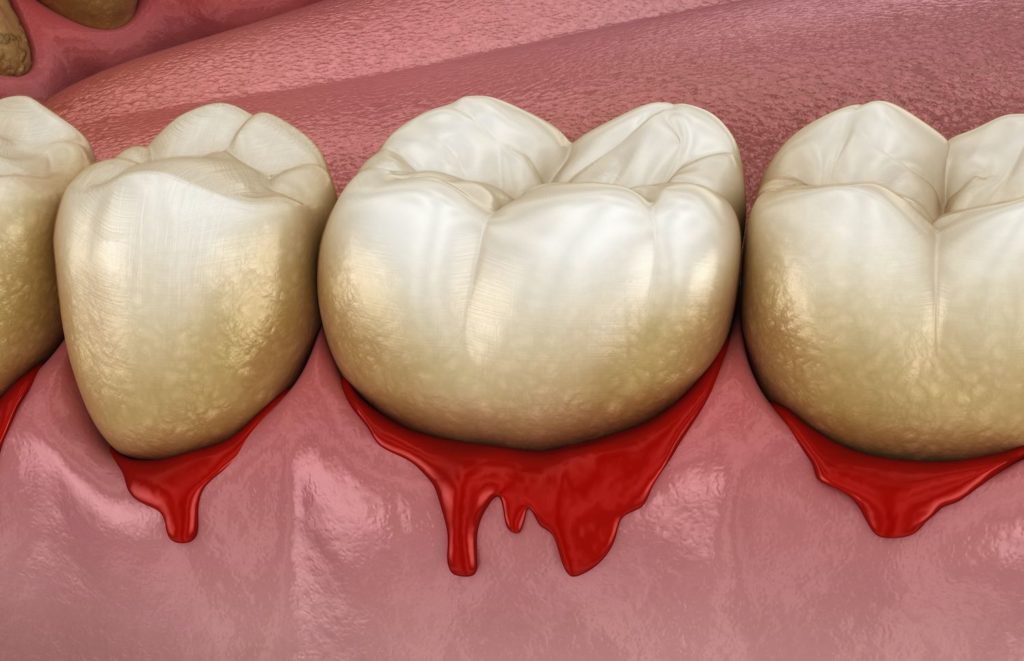There are many reasons why your dentist recommends flossing your teeth and brushing them at least twice a day. It is not just for you to have a pretty, white smile. Dentists want to help you avoid painful and expensive conditions and procedures that are a result of poor dental hygiene. One of the conditions dentists wish you to avoid is gum disease.
Gum disease is very common. In fact, according to the Centers for Disease Control and Prevention (CDC), nearly half of people aged 30 years and older have some form of gum disease. Fortunately, the early stages of gum disease are highly treatable and easily reversed. Advanced gum disease can cause significant issues to your mouth, including tissue death and bone loss. However, gum disease doesn’t just affect the mouth. Without treatment, gum disease can wreak havoc on your entire body.

What Is Gum Disease?
Gum disease, or periodontal disease, is an infection of the gums. It generally begins as swollen, red, or irritated gums. The earliest stage of gum disease is known as gingivitis. As periodontitis progresses, it will start to damage the soft tissue, leading to infection.
While some people are more genetically inclined to have gum disease, periodontitis is usually the result of poor oral health. Typically, you can avoid gum disease by brushing and flossing regularly. Additionally, visiting the dentist for professional cleanings will minimize your risks.
You should talk to your dentist about preventative options if you notice blood when you brush or floss. Gum disease can also look like red or swollen gums. You can also experience mild to moderate pain, depending on the severity of the disease.
Effects on Your Body
Not only can gum disease have some nasty effects on your mouth, including tooth loss, but it can also damage your whole body.
Heart Disease
Numerous studies have shown that patients with gum disease are more likely to develop heart disease. Surprisingly, this is because of plaque. Plaque is a sticky bacterial substance that builds on your teeth; it is what you brush off daily. Plaque also causes gum disease. The same plaque that you have in your mouth is the same plaque that can build in your arteries. A buildup of plaque in your arteries can reduce its efficiency and weaken it due to stress.
Immune System
Gum disease is an infection that can spread throughout your body. When your body has an infection, naturally, it will try to fight it off. But, over time, this can weaken your immune system, affecting your ability to recover from illnesses. In addition, it puts your body under stress that it cannot manage for long periods.
If you have other health conditions, gum disease can actually make them worse. For example, patients with asthma report increased symptoms. In addition, gum disease worsens inflammation, which is unfortunate for people with asthma. Inflammation in the airway is what causes asthma in the first place.
